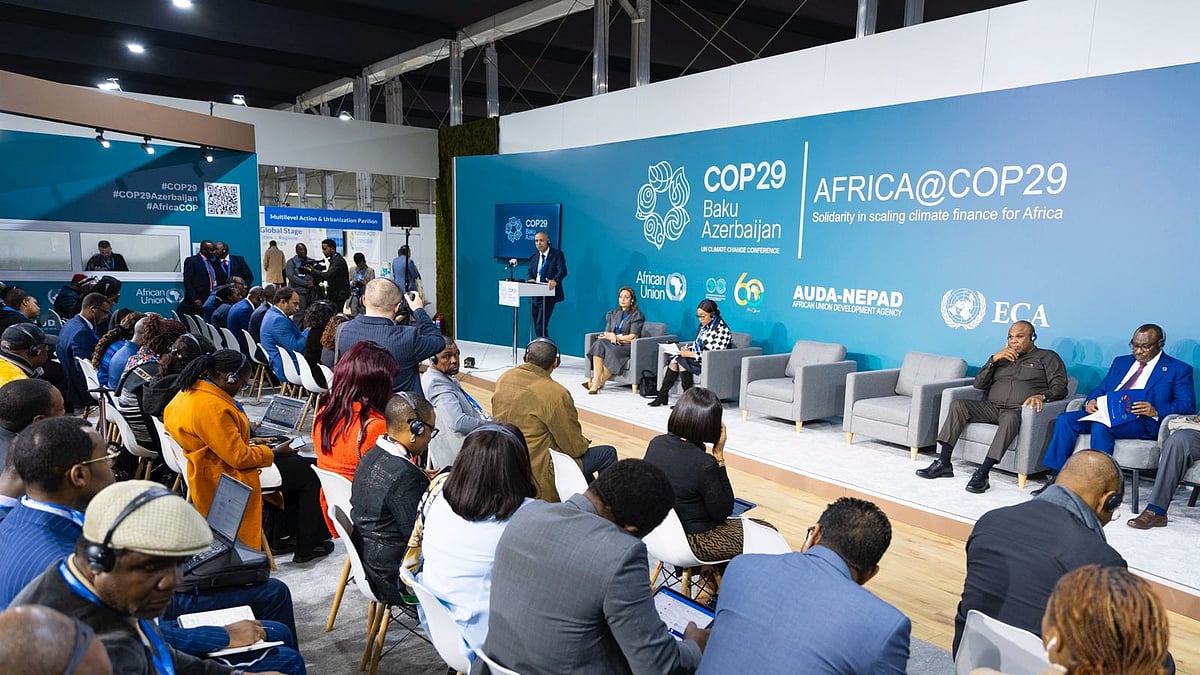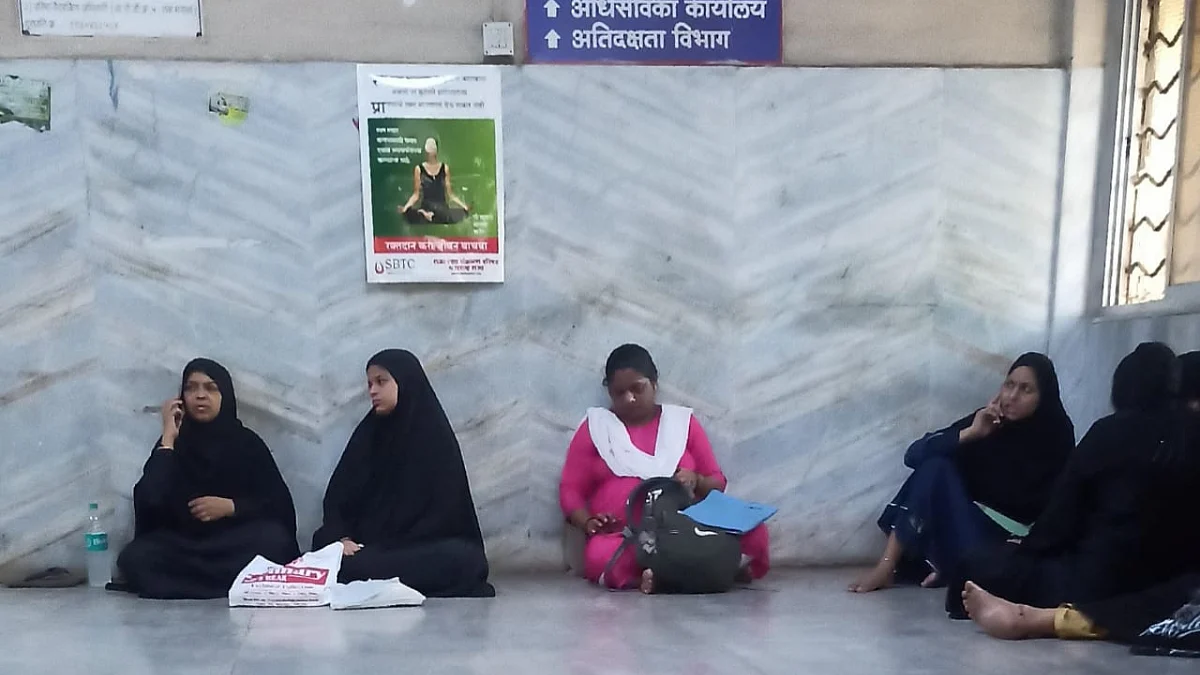Mumbai: The state cabinet's recent approval of a new policy aimed at providing housing for individuals displaced by infrastructure projects in Mumbai has sparked significant controversy. The policy, which involves the utilization of government land, salt pan land under central government jurisdiction, and land owned by Mumbai Port Trust to build flats for project-affected persons (PAPs), has drawn sharp criticism from environmentalists and legal experts alike.
The Urban Development Department of Maharashtra has been tasked with overseeing the acquisition and allocation of these lands, which are critical to the implementation of the policy. However, the decision to include salt pan lands, particularly in areas like Mulund, Bhandup, Kanjurmarg, has raised alarm bells among environmentalists who argue that such a move could have devastating effects on Mumbai's fragile ecosystem.

Stalin D, Director of the Vanashakti NGO |
Stalin D, Director of the Vanashakti NGO, stated, "The history of Mumbai is intricately linked to these salt pans, which are the bread and butter for thousands of individuals who rely on them for their livelihood. Not even the monsoon rains can deter the fishing activities that take place in these salt pans. While it is technically feasible to construct structures on this land using advanced technology, such a move would have catastrophic consequences for the environment. The salt pans are natural low-lying areas that would be severely disrupted if development were to occur, leading to recurring floods in the city. In the aftermath of such floods, governments would likely propose measures such as building safety walls and installing pumps, but these are merely tactics to deceive the public. By acquiring the salt pan lands, the government is primarily benefiting private developers, with a small portion potentially being allocated for project-affected persons (PAPs) and the majority being reserved for private housing under the guise of the PM Awas Yojana. We fear that this will result in the misuse of these lands. In fact, the government's decision to allocate the salt pan land at Bhandup-Kanjurmarg (East) to a renowned real estate developer several years ago was a stark example of how the government's priorities often lie with benefiting private developers over the public interest."

Environmentalist Atul Deulgaonkar |
Environmentalist Atul Deulgaonkar voiced significant concerns about the proposed construction on salt pan land, stating, "This is a blatant interference in the natural balance, as destroying salt pans to make way for construction will leave local people without a means of livelihood. It is a misguided approach that prioritizes development over nature, relegating the latter to a secondary position. Salt pans are an essential component of marine biodiversity, supporting a diverse array of aquatic species, and if we intend to undertake such projects, we must conduct thorough research on the local flora and fauna, and plan accordingly to minimize disturbance. A tree is, in fact, a microcosm of an ecosystem, and if this development comes to fruition, it will lead to catastrophic flooding in cities like Mumbai, which has already experienced recurring waterlogging issues. Encroachment on salt pans can have devastating consequences for both human and environmental well-being. We should learn from Europe's sustainable development approach, which prioritizes nature's interests, and recognize that environmental stewardship is essential for ensuring a healthy and thriving future for all."

Dr. Abhishek Satam, Zoo Biologist at The Mumbai Zoo |
Dr. Abhishek Satam, a Zoo Biologist at The Mumbai Zoo, emphasized the critical importance of preserving salt pans, stating, "Harming salt pans directly impacts biodiversity. While they may seem like areas solely used for salt production, they actually support a rich ecosystem. Many rare birds migrate to India for its favorable climate and food sources, and if these resources are destroyed, these birds will stop coming to Mumbai. In Maharashtra, especially along Mumbai's coast, many birds from Europe en route to Australia stop in Mumbai. We are currently studying the migration patterns of these birds. The Bombay Natural History Society is researching the migration route of the Black-tailed Godwit, a rare bird. A radio tag placed on one of these birds revealed that it took 3 to 4 months to travel from Mumbai's Bhandup pumping station to Siberia, and astonishingly, it returned to the same location in Mumbai within just 6 days. This ongoing research would lose its significance if salt pans are used for construction. Even if the government obtains all the necessary permissions and proceeds with the project, who will take responsibility when a natural disaster occurs? Mumbai, which has already experienced the catastrophic floods of July 26th, is once again risking its habitat and ecosystem by disturbing these crucial areas."
The salt pans, which serve as crucial natural buffers against flooding and support rich biodiversity, are seen as irreplaceable components of Mumbai's ecosystem. The government's decision to proceed with this policy, despite the risks and the clear opposition from various quarters, underscores the delicate balance between development and environmental preservation.
Large Tracts of Salt Pan Land: 3,355 hectares of salt pan lands spread across various areas of Mumbai, including Dahisar, Goregaon, Mulund, Bhandup, Kanjur, Nahur, Ghatkopar, Turbhe, Mandale, Chembur, Wadala and Anik.
New Development Zone: Salt pan lands, previously classified as no-development zones (NDZs), are set to be open for new development.
Ecologically Sensitive Areas: Salt pan lands fall under the category CRZ 1B, where no development activity is allowed except exploration of natural gas and extraction of salts.
Lifeline for Salt Harvesters: Salt pans provide thousands of salt harvesters with a livelihood and support thousands of species of migratory birds and fishes.
Environmental Concerns: Conversion of these lands for real estate development may lead to ecological imbalance and affect the region's ecological balance.
Earthquake Risks: Wet soil in the region may transmit earthquake vibrations rapidly, making the area more prone to earthquakes.
.jpg?width=1200)




.jpg)



